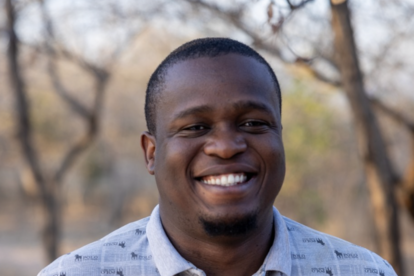The own-funded skills development project YES entered a second Phase in late 2022. Having joined the YES team around the same time, Omary Suleiman delves into the learnings we take into the new phase.
Following the recent trend in Tanzania to move from Dar es Salaam to Dodoma – our President just moved two weeks ago – I left my home city to join the YES team in Central Tanzania at the end of 2022. Despite being new and young, from the moment I stepped into the welcoming YES Project, the team allowed me to take the lead in key activities. Partner review meeting, Rapid Market Appraisal (RMA), Quality Improvement Training, Pedagogy training, the list goes on.
In the new phase of the project, we are improving different dimensions of the project, mainly how and with whom we work as training providers and which training, we offer to better meet the needs of the young people and a degrading environment.
In short: we refined the local artisan model, foster Entrepreneurship training and added green professions to the portfolio.
Selection of training providers and the local artisan models
During phase I, we collaborated with 18 training providers, both private and public, such as VETA and SEMA. However, the quality of the training provided by these training providers varied. In phase II, we narrowed down our selection to 8 training providers who consistently delivered excellent results in all aspects, including the modality of training and reporting.
In phase I, we initially partnered with 15 local artisans to handle a portion or the entirety of the training. Depending on the specific field, these artisans had between 2 and 20 trainees who would stay for a period of 1 to 3 months. For example, hairdressing saloons would have 2-3 trainees, while car garages could accommodate up to 20. In phase II, we introduced the peer-to-peer model, where 5 out of 20 local artisans were successful graduates in our program. These graduates receive incentives to train young individuals for a duration of 1 to 3 months. These peer-to-peer artisans essentially act as local service providers for training purposes.
We are going greener
In Dodoma, agribusiness is a new training field. This is done partly with the well-known Don Bosco training center and Young world feeders, there are already some successful stories to see.

Don Bosco and Young World Feeders are renowned organizations with expertise in agribusiness training. By contracting their services, the YES project ensures that youth receive comprehensive and up-to-date knowledge on sustainable farming techniques. The training programs cover various aspects, including organic farming methods, water conservation, waste management, and biodiversity preservation. With these skills, youth can implement eco-friendly farming practices, minimizing harmful pesticides, reducing soil erosion, and protecting natural resources.
The partnership with Don Bosco and Young World Feeders goes beyond providing training; it aims to empower local communities in Dodoma. By involving local trainers and experts, the YES project ensures that the training programs are tailored to the specific needs and challenges faced by the region. This empowerment enables youth in the region to establish sustainable agricultural enterprises, creating a ripple effect of positive change throughout the community.
Through the partnership with Don Bosco and Young World Feeders, the YES project actively supports Dodoma’s green initiatives by providing comprehensive agribusiness training, promoting sustainable agriculture practices, empowering local communities, and enhancing economic growth, we aim to create a more environmentally conscious and prosperous future for Dodoma. Together, we can cultivate a greener landscape while simultaneously empowering individuals to embrace agribusiness opportunities that preserve our precious natural resources.


